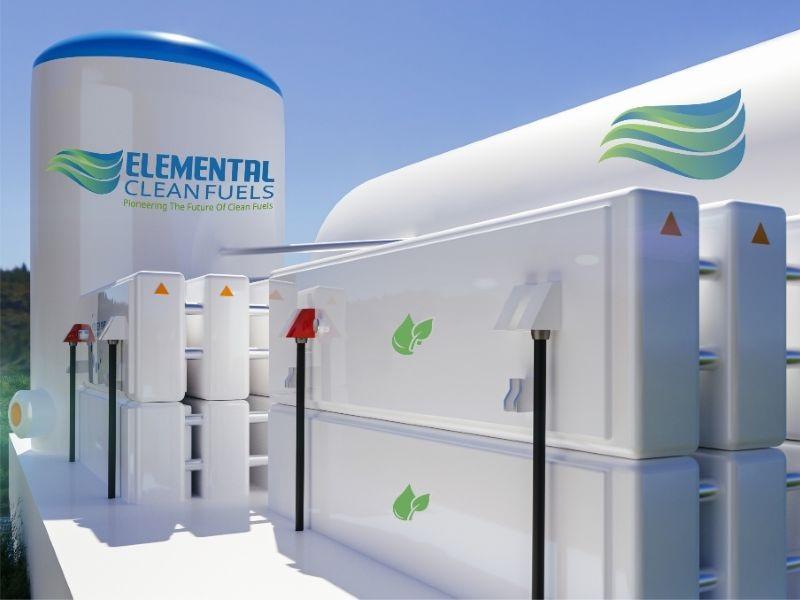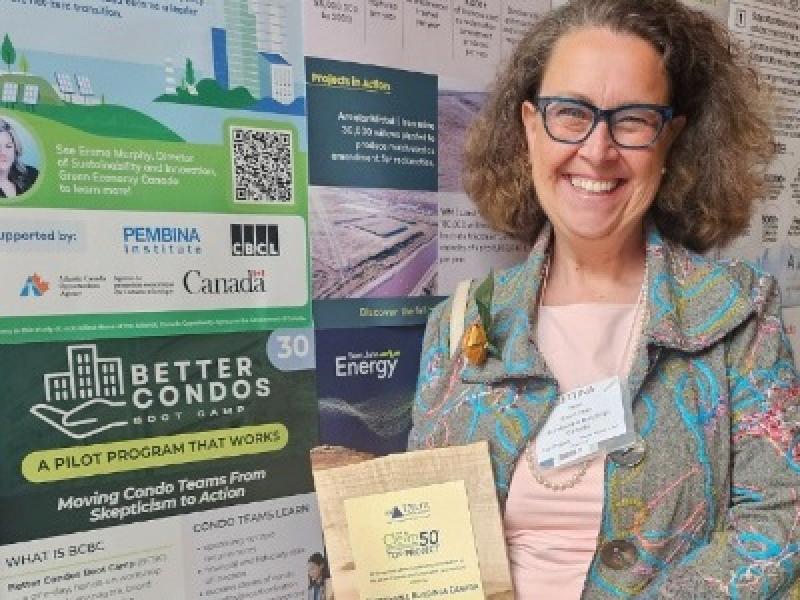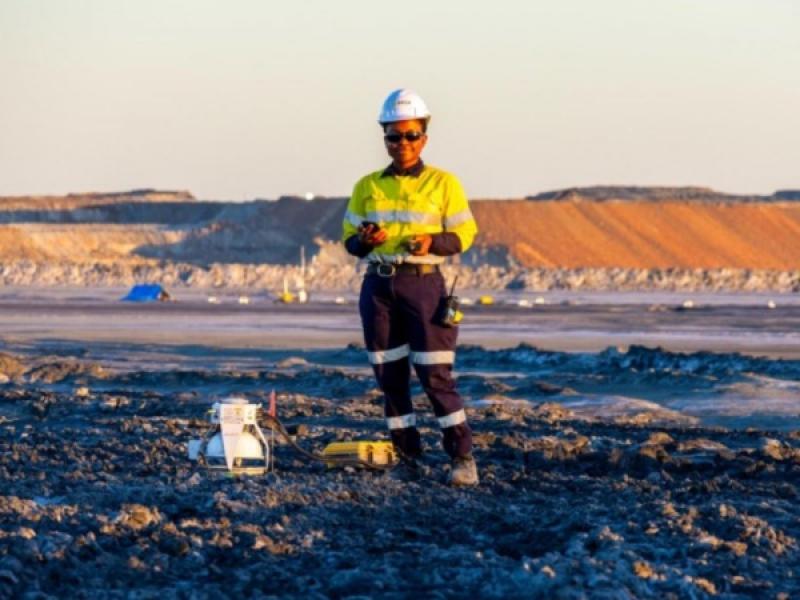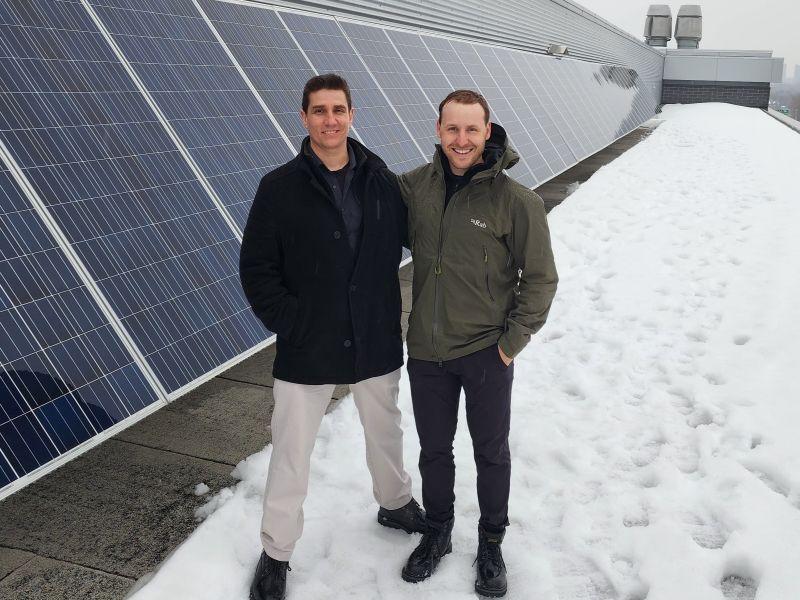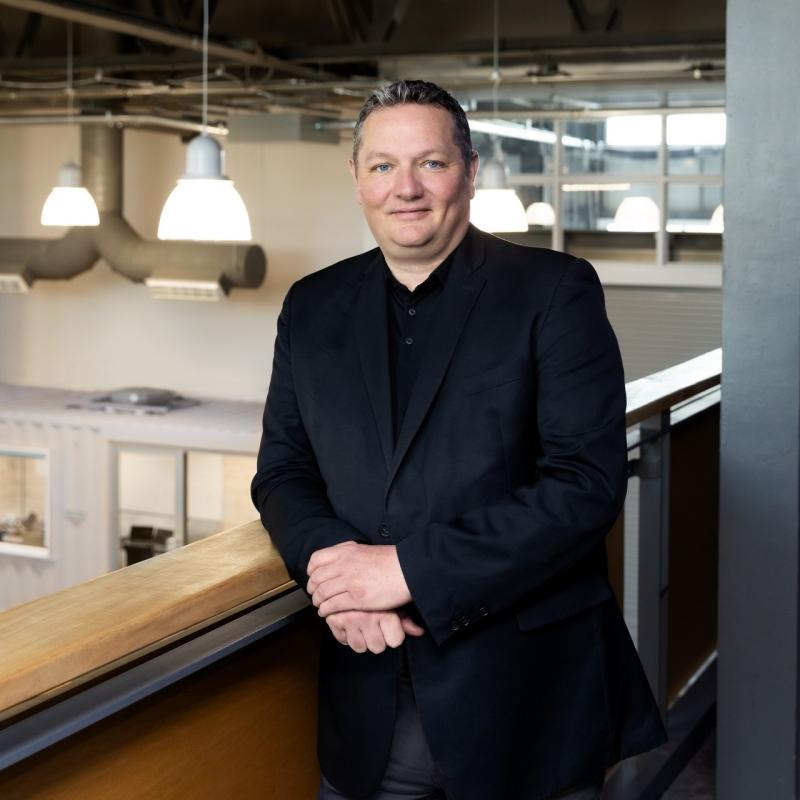
A new, Indigenous-owned company is preparing to go to market with an innovative and simple way to solve some challenges around hydrogen power distribution: just add water.
Vancouver-based HyVera Distributed Energy recently announced a new hydrogen-on-demand technology — developed by U.S.-based EnviroGen Technologies and the U.S. Department of Defense — that provides 99.999 per cent pure green hydrogen instantly, when water is added to dry powder pellets to complete the process.
The technology has been around for years, according to HyVera's CEO and majority owner Rich Robillard.
“The (U.S.) military has really worked on it in the last decade. It’s a simple oxidization reaction. The challenge that they had is they were never able to get the density out of the reaction; they couldn’t produce enough hydrogen in terms of energy density, but that’s what they cracked," Robillard told Sustainable Biz Canada in an interview.
"The formulation, which is very proprietary, it’s basically industrial byproducts that are readily available and once you mix the powder, they pelletize it, only because water mixes with it better.”
Robillard said this process addresses key problems faced by those who want to deploy such power.
“It solves the big three challenges with hydrogen: transportation, storage and then cost, because we don’t have the same kind of energy input cost and the products are, for the most part, from industrial waste.”
The company is already partnering with Ballard Power Systems on fuel cells. “We can produce basically green energy or zero-emissions energy regionally on-site, off-grid in any location.”
“You could literally have something the size of a cooler, where you have a small reaction chamber and a small hydrogen fuel cell, and you could power a sailboat," Robillard said. The technology can be used at smaller scale, "right up to our work with Ballard . . . we’re pretty confident we can get up to seven-megawatt, fuel-cell power units.”
Production facilities coming
It will also soon build pellet-production facilities in B.C. and Nova Scotia.
“There’s no energy required to form the hydrogen and the byproducts are already waste. We are, in essence, recycling burnt waste and only having to add water, with no electricity or other temperature or any kind of other pressure inputs,” he said.
The company hopes to have the facilities operating and open for business in 2026, with the possibility of constructing three more demonstration sites.
HyVera views municipalities “or anybody that has a fleet of vehicles that’s using compressed hydrogen as a fuel source,” as another potential market, according to Robillard.
“Infrastructure has been a huge issue. They have to truck it in. Well now they can have a hydrogen production unit right in the middle of their yard . . . that hydrogen production unit is simply producing hydrogen, compressing it and then using it as a fuel source,” he said.
The company also hopes to offer its product to industries that employ hydrogen in processing materials, “instead of trucking-in hydrogen that’s compressed, is not very efficient. Liquid is very dangerous; it’s cryogenic and explosive. Now you can bring in a completely stable, safe, benign powder; pelletize it and produce it on-site.”
The path followed by HyVera
While HyVera is a relatively new endeavour, its genesis is rooted in a previous business endeavour and a problem that needed a solution.
“A couple years ago, we formed a company called Blue Orca Marine and we were a Canadian company, majority Indigenous-owned, and we were taking a technology that had been shelved of (a) zero-emissions, hydro-foiling boat, it was hydrogen fuelled,” Robillard said. The hydrogen project had been shelved because of difficulty handling the fuel.
“I think they were a little early, so we were looking for hydrogen infrastructure to support the vessels.”
Blue Orca still exists, producing hydrofoil vessels, but HyVera will be the firm commercializing the pellet technology.
The type of water that can be used is varied, which provides some interesting potential future applications for the technology, said Robillard.
“It doesn’t need to be pure water. It could be salt water. There are even some experiments going on with municipal wastewater, and what’s really key is that it’s at a low pressure and it’s at a low temperature. There is a byproduct, a slurry, but it’s completely benign, and it can be recharged, and the gas is simply dried and it’s available for use on-site.”
HyVera's ownership makeup
For Robillard, one of the keys to success lies in a unique ownership structure.
“We don’t actually have any corporate, any institutional, no VCs (venture capitalists). We’ve done a couple of angel (investor) rounds and it’s a little over 50 individuals, and I’m the majority owner, and I have my Metis status, but we have a number of other individuals, but no institutions. We’ve been able to really bootstrap it with just some really, really good angels.”
HyVera is hoping to help Indigenous communities solve some of their energy challenges.
“If you think about energy security in the North, the Canadian government subsidizes $400 million in diesel for power generation. This could replace all of that in a green manner,” Robillard said.
HyVera is also “in discussions” with some First Nations communities and hopes to offer “not only energy security, but energy sovereignty,” he added.


